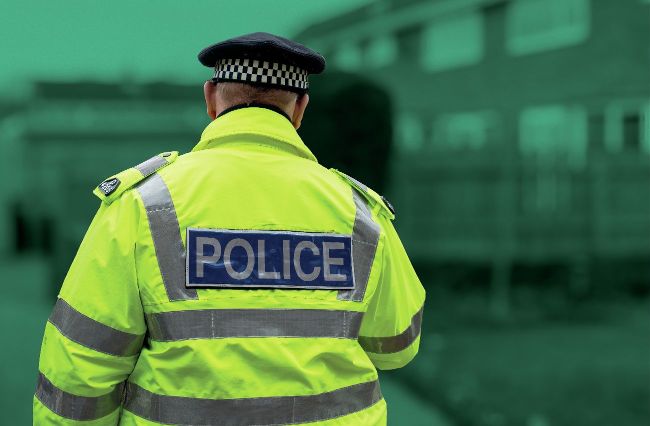
IMAGE: GETTY IMAGES/ALPHOTOGRAPHIC
The Home Office has published the latest Statutory Guidance for Chief Officers of Police (COoP), alongside the Firearms Amendment Rules 2025. This updated framework, dated August 2025, sets out mandatory procedures for police forces in England and Wales and introduces changes which will affect both applicants and Registered Firearms Dealers (RFDs). What follows is a guide to the new provisions, with my appraisal of how they will likely impact the trade and enforcement agencies.
MANDATORY TRAINING
To ensure compliance with the new Statutory Guidance, a national training course for firearms licensing is now mandatory for all Firearms Enquiry Officers (FEOs). The training isdelivered by the College of Policing. While this is a positive step, the rollout has been slow and is dependent on individual force funding, creating a backlog in getting officers through the programme. In the meantime, delays in certificate processing remain a persistent issue for the trade.
DOMESTIC ABUSE
The new rules require the police to interview the applicant’s partner and other household members during a home visit. These interviews must be conducted separately from the applicant and without their presence. Police are also instructed to ensure that anyone with a history of perpetrating domestic abuse cannot hold or retain a certificate.
Although this should bring greater consistency across forces it will also add to the already heavy administrative workload of firearms licensing departments. Inevitably, this will increase delays. More concerning is the risk of malicious or vexatious claims being used to trigger gun confiscations, a scenario that has repeatedly caused long periods of disruption for both individual certificate holders and RFDs whose businesses depend on maintaining licences.
REFEREES
Applicants for both firearm and shotgun certificates must now provide two referees. Referees will be reminded of their responsibilities, including the need to notify the police during the five-year validity period if they develop concerns about the applicant’s suitability.
This marks a significant tightening of the referee system. Shotgun applicants will now need to find an additional referee, which may prove difficult in some cases. Furthermore, referees must demonstrate a “reasonable degree of contact” with the applicant. In practice, this places added pressure on applicants and referees alike, with no clear evidence that the system enhances public safety.
MEDICAL INFORMATION
The updated guidance emphasises the role of GPs and independent medical providers.
Doctors are now asked to comment on whether a patient has any neurodevelopmental conditions that could affect safe firearms ownership, and to answer the broad question:
“HOW IS THE PATIENT NOW?”
There is also a requirement for applicants to declare periods when they have not been registered with a UK GP. While I am not a medical professional, these changes appear to be more about refining the process than introducing substantial new risks to the trade.
Independent medical services remain essential for applicants, particularly where GPs decline to participate or charge prohibitive fees. Since their introduction in 2019, firearms licensing departments have often criticised inconsistencies in the reports.
Yet these companies remain essential for applicants, especially when GPs refuse to participate or charge prohibitive fees. From experience, police departments will reject medical reports over minor errors, so I strongly advise RFDs to submit renewal applications 16–20 weeks before expiry to avoid complications.
RFD SERVANTS
Police are required to conduct background checks on RFD servants, though medical checks are not mandatory in all cases. This is a welcome clarification, particularly in light of recent efforts by some Police forces to introduce medical requirements more broadly. How strictly this new clarification will be observed remains to be seen.
ASSESSING SUITABILITY
Applicants must now disclose a much broader range of past offences and disposals, including cautions, reprimands, fixed penalty notices and even speed awareness courses.
Overseas convictions and any period of residence outside the UK for six months or more must also be declared.
While the aim is to ensure a more complete assessment of suitability, the risk is that applicants may unknowingly omit minor or historic issues. Certain police forces have in the past treated such omissions as deliberate dishonesty, leading to immediate rejection. This stricter framework will almost certainly lead to more applications and renewals being refused, even where omissions are unintentional.
SURRENDER OR SEIZURE
The Statutory Guidance has confirmed that the police cannot seize firearms, shotguns or ammunition without either voluntary surrender or a warrant issued under Section 46 of the Firearms Act 1968, except where there is an immediate threat to life. This maintains an important safeguard against overreach.
SECTION 7 PERMITS
Section 7 permits, which allow continued possession of firearms while certificate renewals are delayed, have been used excessively by some police forces in recent years. The updated guidance makes clear that this practice must be avoided, emphasising the responsibility of Chief Officers to adequately resource licensing departments. This clarification should be welcomed by the trade, which has long raised concerns about the negative impact of prolonged reliance on temporary permits.
CONCLUSION
The latest Statutory Guidance represents both progress and challenge. On the positive side, it clarifies the limits of police powers around seizure, reins in Section 7 permits and provides consistency in areas such as domestic abuse checks. Yet at the same time, it imposes additional burdens on applicants, referees and licensing teams already struggling with delays and underfunding.
For RFDs, the key takeaway is to stay ahead of the curve: plan early for renewals, advise customers on the new referee requirements and remain alert to the risks of malicious complaints or inadvertent omissions. The Gun Trade Association will continue to monitor the impact of these changes closely, engaging with government and the police to ensure the trade’s voice is heard.
GET IN TOUCH
T: 01684 291868
E: office@gtaltd.co.uk
W: www.gtaltd.co.uk